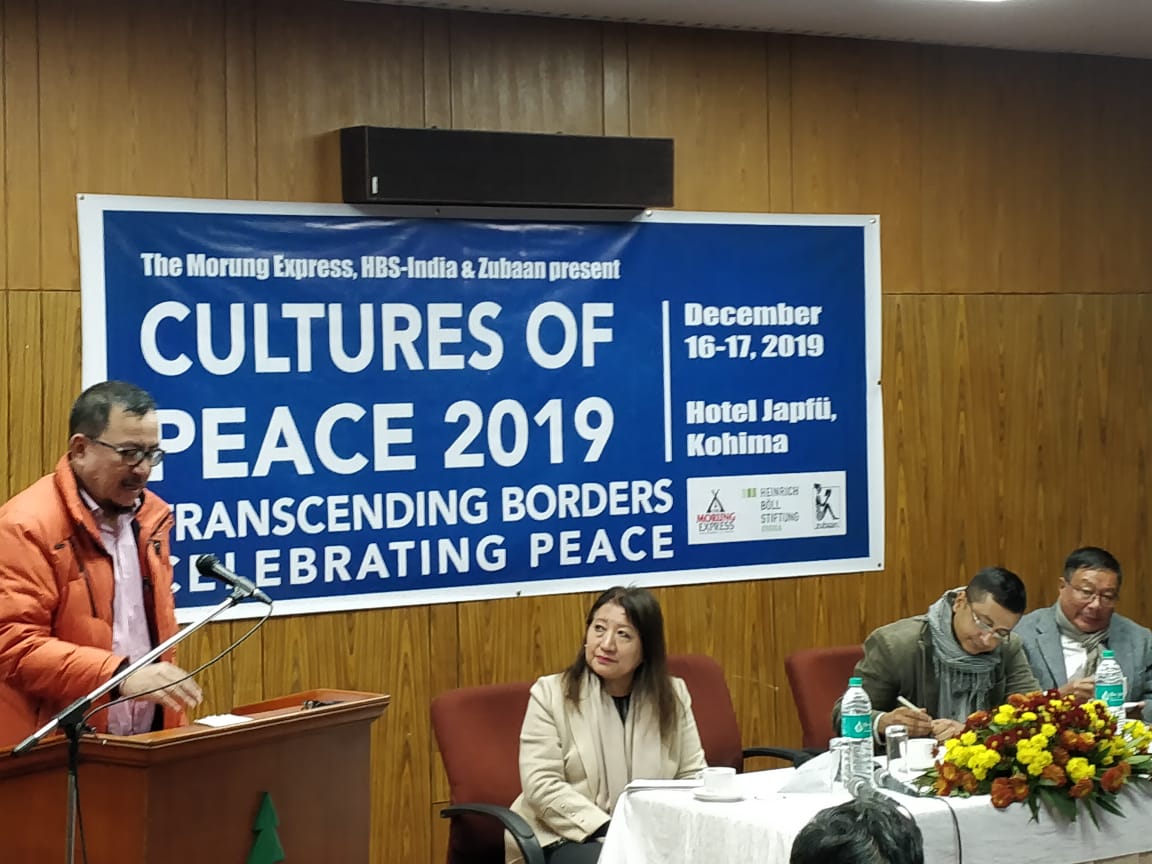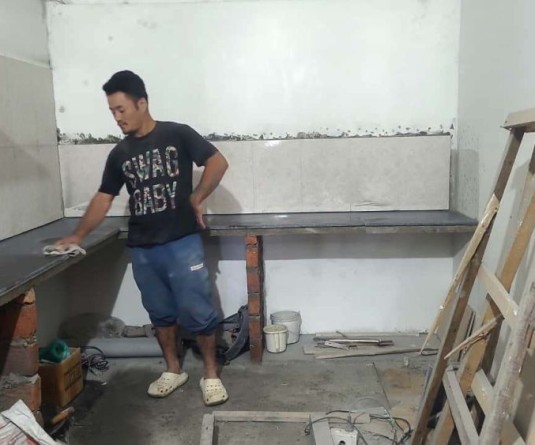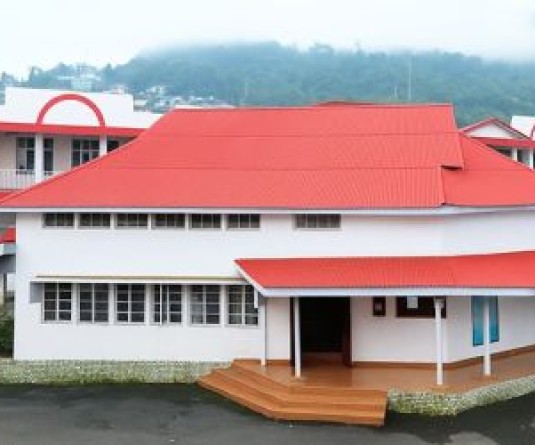Gg

Morung Express News
Kohima | December 16
The session on 'Transcending Borders: Cultivating dialogue between cultures' at the first day of Cultures of Peace, Transcending Borders: Celebrating Peace that was jointly organized by The Morung Express, Zubaan and Heinrich Böll Stiftung, India at Hotel Japfü discoursed on re-defining, rethinking and re-creating new relationships among neighbors, and overcoming distrust, discrimination and stereotypes of cultures with emphasis on the North East Region.
In order to redefine and recreate new relationships, Pradip Phanjoubam advocated the essence of understanding the past, and moving into the courses of history in one's own terms and understanding. "What we are facing now is inherited from the British colonialism," said Phanjoubam while pointing out the idea of boundaries and territories which were developed with the advent of the British.
Before colonialism, Phanjoubam stated that 'We had homelands, these homelands were different from boundaries', further highlighting that homeland instilled a sense of 'belonging and love for a place', while territory meant claiming ownership to a land.
With the idea of territory imposed by the Europeans, Phanjoubam also asserted that it has created a new territory consciousness in everybody. Transcending borders, Phanjoubam viewed, must begin with dialogue on the premise that 'we don't have to be totally carried away by modern systems. We have to live in modern times but in our own terms and understanding'.
"Without actually forgoing modern system, we must enter modernity with our own terms and understanding. We need to cultivate the consciousness that we are together. The consciousness of our limitedness is what should bring us together. With this consciousness, if we can be a little more humble," stated Phanjoubam.
"A lot of the problems that we thought were resolved actually has not been resolved, has not been transformed but has been transferred into the 21st Century," said Xonzoi Barbora. He pointed out two ways of looking at the 21st century, and looking at the current crisis differently from two aspects: Food and non-humans.
Viewing that non-humans entities such as forests and animals are hugely affected by crisis, Barbora said, "If we are to look at dialogue and culture we have to bring in the non human, it affected the non human in so many ways."
Recalling the advice of an academician at Guwahati University, Barbora paraphrased, "There are three things that has to co-exist- water, human beings and wildlife. While water will always find a way to the sea, and wildlife find higher ground for co-existence. It is human beings who don't know how to live with one another. Not only are we arrogant enough to think that we have solutions, we actually make things worse."
One of the impacts of counter - insurgency, for Barbora, is the creation of silos. "It killed the idea of solidarity. And it made us believe that we all suffered alone, that nobody suffered together. And it atomised in such a way that mine could not be transferred to yours and yours could not be transferred to mine," asserted Barbora.
Sharing experiences from the former ULFAs in Assam who have all resorted to farming after giving up arms, Barbora noted the importance of food for rediscovering and strengthening of cultures. "If there is a future of equity, they see the future in farming and food sovereignty," said Barbora. Food, for Barbora, is an important way of rethinking what all our struggles were all about in the 20th and 21st century. But most importantly, Barbora expressed the need for cultures to listen to one another. "We need to listen. When you listen, then we find that experiences are much more layered than we give them credit for," remarked Barbora.
Speaking on the desire of power and its impact on humanity, Dr. P. Ngully noted that the feeling of superiority is the root cause of discrimination. From the psychological aspect, Dr. Ngully laid emphasis on the need for empathy and sensitivity for rediscovering and dialoguing between cultures.






